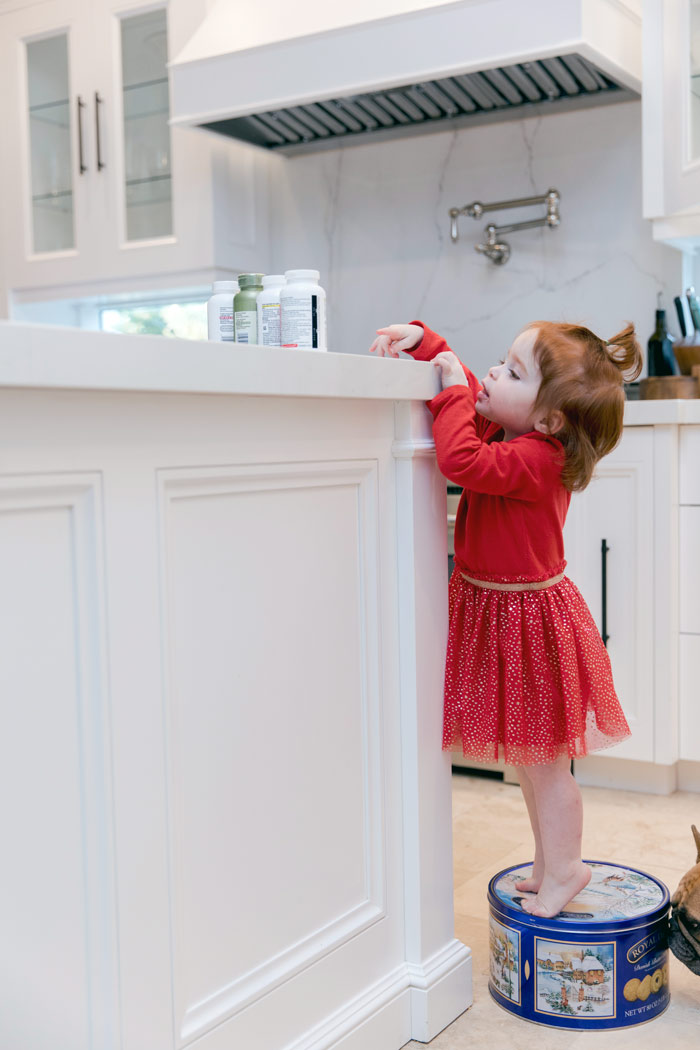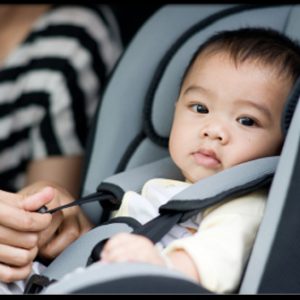
The 3 Most Dangerous Medication Mistakes Parents Make
Approximately 60,000 kids go to the ER every year because of medications left within reach – this equals 4 school bus loads of kids every day. In fact, according to SafeKids, “Almost every minute of every day, there is a call to a poison control center because a young child got into a medicine.” When it comes to children and deadly ingestions, I am passionate about safety, education, and prevention. Working in a pediatric emergency room, I can tell you firsthand that most accidental ingestions occur within seconds. If you take the time to store medicine safely, you can easily prevent the most common fatal ingestions.
Through Forever Freckled, we have the privilege of working with some incredible companies. But my favorite collaborations are the ones that focus on safety and mishap prevention. For the past year, I have worked with KnowYourOTCs, educating parents on how to safely use, store, and dispose of medicine. National Poison Prevention Week is March 17-23, 2019, so let’s take this great opportunity to learn how to store medicine properly and protect our children from accidental ingestions.
How you store medicine, whether at home or away, can literally mean life or death for a small child!
As parents, distractions are unavoidable. We all get distracted. While answering a text or changing a diaper, we have all looked away, if only for a second. Unfortunately, some of the most dangerous accidents can occur within seconds when our eyes are averted.
The good news is that there are vital measures you can take right now to prevent horrible “in the blink of an eye” tragedies, especially when it comes to how you store medicine in your home and on the go. I urge you to avoid the most common medication mistakes, and implement key safety and prevention measures to protect your children from deadly ingestions.
The 3 Most Common FATAL Medication Mistakes
1. Medicine is NOT Candy!
We have all been there with a child who has a 102 fever, refusing to take fever reducing medication. One tactic parents use is to tell their child the medicine tastes like candy, or even worse, that it is candy. This idea can lead to dangerous and deadly ingestions. Never tell your children that medicine, including vitamins, is candy, even if it encourages your child to take it. It may work in the moment, but it can lead to deadly consequences if the child ever accesses medications unsupervised.
Teach children the difference between fruit snacks, gummies, or candies and similar looking medicines or vitamins. And teach your children what medicine is and that only a parent or caregiver is allowed to give it to them.
2. Keep Medicine Up & Away
Double check that you store medicine safely up, away, and out of sight of kids. So many deadly ingestions occur within seconds. I cannot stress enough how important it is to store vitamins and medications up high and away from young children’s reach. Out of sight, out of mind. In addition, adult medications should never be stored with children’s medications in order to reduce the chances of mixing up medications. And if possible, use child safety locking lids on any bottled medications.
3. Traveling and Medications
Many of the ingestions I treat take place when a family is traveling, especially when visiting a grandparent. Older people take medications, such as for blood pressure and diabetes, that can be extremely dangerous to children. Also, grandparents likely do not store medicine up high or out of sight. They often keep medications in a pill box or next to their bed. Reminding family and friends to put away medications when you visit is an important step to keeping your kids safe from accidental ingestions.
This step is also important for medications in your purse or for guests in your home who take medications. I encourage you to have conversations with your guests about keeping their medicines away from your children and pets.
Poison Control to the Rescue!
It amazes me how many parents don’t know about the awesome resource available to them in Poison Control! Poison Control can save you a trip to the ER for many situations, not only accidental ingestions. More importantly, if your child does ingest something they shouldn’t, Poison Control can provide you with critical steps to take before emergency help gets involved. It is especially important to provide the phone number for Poison Control, along with contact information for your pediatrician and local hospital, to babysitters or anyone keeping your children when you are away.
The Poison Control Centers’ phone number should be easily accessible in your own home and saved into your cell phone: (800)-222-1222.


